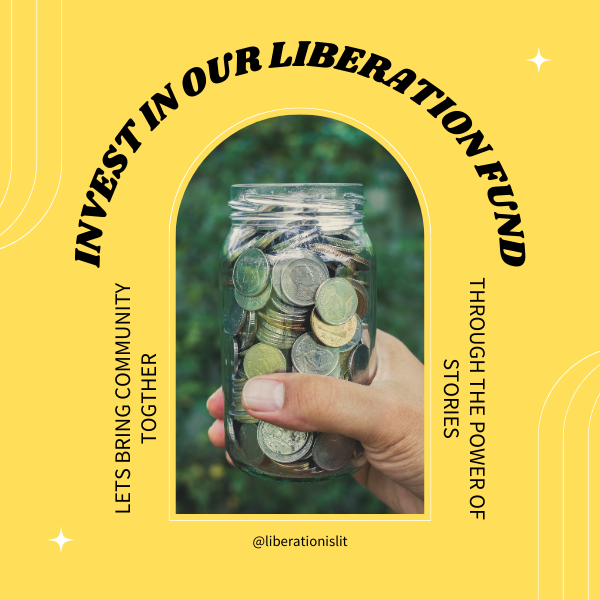As first posted on feministbookclub.com
I’ll never forget where I was when I found out the Queen of England had died, just because it felt so absurd to me.
“Oh my God,” I heard coming from down the hall as I was meeting with my student.
“…DIED!”
At first, I thought they were talking about the abortion ban South Carolina lawmakers were debating at the time. I thought I was being too optimistic, but I was getting ready to celebrate! [By the way, the total abortion ban was sent back to the house with some rape exception amendments.]
“Elizabeth!”
Then, I was about to freak out. One of our board members was named Elizabeth, so my brain automatically went there. I really like them, and they are so young! At this point, I opened my door to hear the conversation being shouted through the hall.
“I can’t believe Queen Elizabeth is dead!”
I immediately lost interest. I am as fascinated with the British Royals as I am in eating plain oatmeal (which is to say not at all). I didn’t think about it again that day.
But when I woke up the next morning, social media had blown, and the little corner of the internet I had cultivated was unanimously meme-ifying the Queen. I couldn’t stop laughing, but I also felt some things.
Let’s Decolonize the Queen’s Legacy
It is no secret that the British Monarchy oversaw a government that was responsible for the pernicious and destructive results of colonization and imperialism for the sake of white supremacy. The Queen herself isn’t personally responsible for colonization and imperialism (so much of it happened before her reign), and these things won’t stop now that she is no longer alive. However, she is the very symbol of these things.
Many people on social media justify the memes and jokes by saying this is a way for millennials and Gen Z (but also generations of people of color) to cope with the suffering they face. They are unapologetic about calling out the sins of the Queen.
But does that mean we should make fun of someone who died?
I will say, I respect death. I feel like death puts us in a difficult relationship with people who have died, whether we knew them personally or not. After someone dies, they are no longer there to defend themselves against criticism. How can we hold someone accountable for the harm they have caused if they cannot receive consequences for their actions?
People are still calling out the Queen as a manner of holding her accountable. I challenge if this is actually accountability. How is the Queen being held responsible if she is no longer alive?
One thing these memes do, however, is challenge the narrative of the whitewashed history of British colonial rule. Challenging this narrative is a way of holding those who glorify this history and further promote white supremacy, colonialism, and imperialism accountable.
On a human level, I connect with the royal family. I would not like my grandma being the butt of so many jokes while I’m grieving her loss. I would be angry, get super defensive, and probably lash out.
However, when you become such a public symbol, people are allowed to have the reactions and feelings they have when a major event happens. You become two entities: the subject (the personal) and the object (the cultural symbol). These jokes just happen to conflate both the subject and the object as one.
What does Kobe Bryant have to do with this?
With all these jokes and the backlash to the jokes and the backlash to the backlash, I can’t help but think about how I felt when Kobe Bryant died.
When Bryant died, it was a triggering experience for me. All over the news, on social media, and in everyday conversations, people were celebrating the life of Bryant. They went on and on about how great of a basketball player he was (affectionately calling him a 🐐). They showed him being a great husband and a great dad.
But in 2003, Bryant was accused of sexual assault. I’m not sure why I have such vivid memories of discussing this on the playground with my friends and classmates in third grade, but it’s a testament to how much people were talking about this case. The charges were dropped when the victim refused to testify, a very common occurrence with sexual assault survivors. When the charges were dropped, Bryant went back to being an irreproachable basketball star.
After he died, Gayle King was highly criticized for asking Lisa Leslie, in an interview, about the effect of Bryant’s rape allegations. The criticism, to me, felt like a Black defense mechanism (rooted in white supremacy) to always uphold Black greatness at the expense of people who may have been harmed by the folx we put on pedestals.
“I don’t think it’s something that we should keep hanging over his legacy,” said Leslie.
I think this was a very fair question for Gayle… maybe not to his friend, but a fair cultural question to ask in general. In reality, we can’t separate this from his legacy because this is also part of his legacy.
Just like we cannot forget how the Queen’s legacy is tied to and includes colonialism and imperialism.
I will probably continue to laugh at the jokes about Queen Elizabeth (and the ones about Charles are even funnier). I hate that the family has to deal with this insensitivity, but the world is allowed to call out her behavior and criticize her legacy.
Death is not an excuse to silence the expression of pain from oppressed people.


